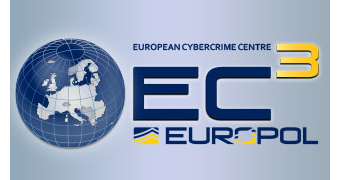A new organization for defending the European Union (EU) against cybercrime has been launched on Monday, under the name Joint Cybercrime Action Taskforce (J-CAT).
The new unit is comprised of Cyber Liaison Officers from involved member states of the EU, the EC3 (European Cybercrime Centre) and non-EU law enforcement partners.
J-CAT is hosted at the EC3, which is Europol’s focal point in its fight against online crime, and it is tasked with coordinating the international investigations involving different partners. The objective is to eliminate cyber-threats like underground forums and malware of all sort.
Countries already part of J-CAT include Austria, Canada, Germany, France, Italy, the Netherlands, Spain, the UK and the United States. Commitment for the initiative has been expressed by Australia and Colombia, giving the taskforce a global aperture to taking down cybercrime extending to different parts of the world.
“The Joint Cybercrime Action Taskforce will operate from secure offices in Europol’s HQ assisted by experts and analysts from the European Cybercrime Centre. The aim is not purely strategic, but also very operational. The goal is to prevent cybercrime, to disrupt it, catch crooks and seize their illegal profits. This is a first step in a long walk towards an open, transparent, free but also safe Internet. The goal cannot be reached by law enforcement alone, but will require a consolidated effort from many stakeholders in our global village,” said Troels Oerting, Head of the EC3.
At the helm of J-CAT is Andy Archibald, Deputy Director of the National Cyber Crime Unit from the UK’s National Crime Agency (NCA).
He says that J-CAT is the first initiative that gathers under the same umbrella countries from Europe and beyond “to coordinate the operational response to the common current and emerging global cyber threats.”
The new division has been initiated six months ago as a pilot program, by EC3, the EU Cybercrime Taskforce, the FBI, and the NCA.
It will pull information about criminal activities available in national repositories, governments and private partners, and it will create intelligence that can lead to determining targets and crime networks.
Basically, the unit will be on top of major cybercriminal activity, from malware coding testing and distribution to botnets, crime-as-a-service and online fraud.
As cybercrime increased in the past few years, law enforcement agencies needed to find a new, more centralized way to organize their assets, in order to have input and the possibility to stop top dangers from an incipient stage of deployment.

 14 DAY TRIAL //
14 DAY TRIAL //